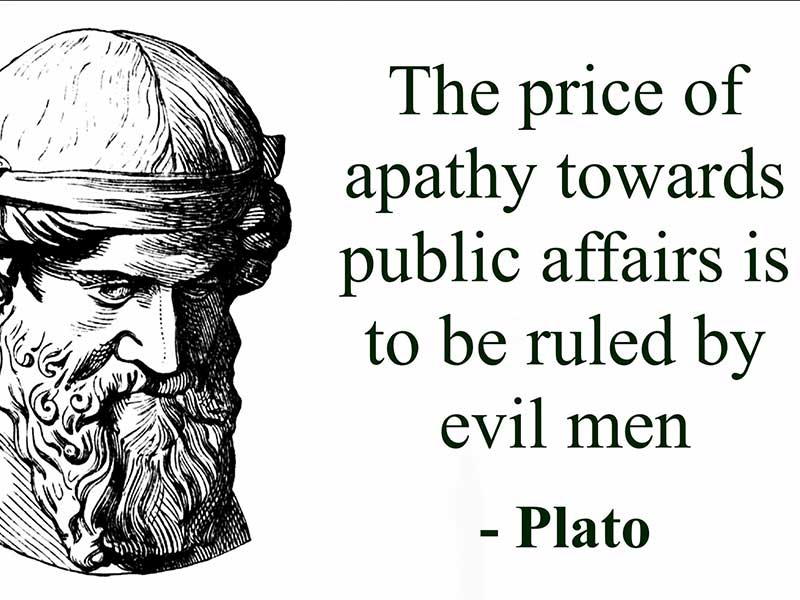Proud to introduce to you Plato
Plato
Plato was a Greek philosopher who lived from 428/427 BCE to 348/347 BCE.
He was a student of Socrates and a teacher of Aristotle.
Plato's writings explored justice, beauty, equality, aesthetics, political philosophy, theology, cosmology, epistemology, and the philosophy of language.
He founded the Academy in Athens, which is traditionally considered the first university in the Western world.
Plato's works on philosophy, politics, and mathematics were very influential.
School
Student of Socrates and a teacher of Aristotle
First University
He founded the Academy in Athens, the first in the Western world
DOB
He lived from 428/427 BCE to 348/347 BCE in Greece
Quotes
Plato's quotes are still relevant today and demonstrate his keen insight into human nature.
Some of his most famous quotes include:
"We can easily forgive a child who is afraid of the dark; the real tragedy of life is when men are afraid of the light".
"At the touch of love everyone becomes a poet".
"Wise men speak because they have something to say; fools because they have to say something".
Books
Plato's most famous books are his Dialogues, which form the basis of Western philosophy.
In these Dialogues, Plato featured his former teacher Socrates in almost all of them.
Some of his most famous Dialogues include:
The Republic: This book explores the nature of justice, the ideal society, and the role of the philosopher in society.
Symposium: This book explores the nature of love and desire.
Phaedo: This book explores the nature of the soul and the afterlife.
Dialectics
Dialectic is the method by which knowledge is acquired, the subject of true knowledge (episteme); the process through which the sensitive world is reached in the supersensible world; In metaphysical knowledge interjects the analytical intellect (dianoia) and the pure intellect.
The myth of the cave is an allegorical picture of the world and how it can be known.
Metaphysics
Platonism is a term used by scholars to refer to the intellectual consequences of denying the reality of the material world.
In some dialogues, most remarkable in the Republic, Socrates reverses the intuition of people about what is known and what is reality
While all people accept the reality of the objects that are perceptible to their senses, Socrates has a despicable attitude towards the people, who believe that to become real things have to be palpable.
In Theaetetus, he calls them "I mousoi: ad literam" happy without museums "(Theaetetus 156a).
In other words, these people live without the divine inspiration, which gives it to other people like him access to superior meanings about reality.
The idea of Socrates, that reality is not available to those who use the senses, has created divergences with the inhabitants of Athens and with the common sense.
Socrate believed that blindfolded, and this idea is most often mentioned in connection with the allegory of the cave.
The allegory of the cave (Republic 7,514a) is a paradoxical resemblance by which Socrates argues that the invisible world is the most intelligible ("noeton") and that the visible world ("(h) oraton") is the least possible for knowledge, and the more obscure.
The ideal state
It is the state in which righteousness prevails, a virtue according to which every human type deals with what is ordered by the dominant soul function: those capable of practicing the virtue of reason (wisdom) are making laws, those capable of practicing the virtue of the passionate part (the courage) is dealing with defense, and those endowed with the possibility of practicing virtue appropriate to the appealing part of the soul (temperance) are responsible for the provision of resources. There is a hierarchy of naturally determined social classes: the wise men, the military, the farmers and the craftsmen, respectively.
Another condition of oikeoporeia (apart from practicing by each human type those activities that fit it) is the preservation of the class hierarchy.
The ideal city or state conceived in the Republic's dialogue is not a political project, but an analogy used by Plato to answer the question of the theme of dialogue: "What is justice?".
Thus, the theory of the faculties and virtues of the soul, as well as its design of the state idea, is a model for identifying the form of justice as oikeoporeia.
Neither the ideal state nor the perfectly harmonized soul in accordance with righteousness exists in the sensible world.
In the sensitive field of bodily things, there are only the corrupt forms of Ideas or paradigms (whether it is the Idea of Fortress or others).
Plato summary
Plato was a Greek philosopher who explored a wide range of topics in his writings, including justice, beauty, equality, aesthetics, political philosophy, theology, cosmology, epistemology, and the philosophy of language.
He founded the Academy in Athens, which is traditionally considered the first university in the Western world.
Plato's quotes are still relevant today, and his Dialogues form the basis of Western philosophy.

Content created by:
Alex Costin
Results driven services:
Digital Marketing
Need my expertise?
Contact me
No tracking cookies!
General information purposes only!
Business partners offers (backlinks):
Search Engine Optimisation agency:
SEO
Explore this city secret guide:
Barcelona
Outdoor recreational activity:
Canyoning
Wide range of financial services:
Chartered Accountant
Copyright © 2023 Alex Costin